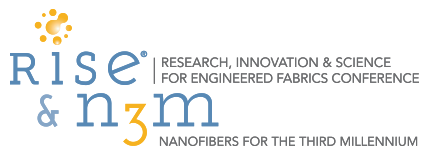
 Jack Miller
Jack Miller
Managing Consultant, Global Nanocellulose Sales
Jack Miller is Managing Consultant, Global Nanocellulose Sales, American Process Inc., since December, 2014. His experience with nanocellulose dates back to 2009 with market research in CNF and CNC applications, and later as Business Development Consultant with CelluForce Inc.
Jack is the author of the 2014 RISI study Nanocellulose: Technology, Applications, and Markets, and has presented on nanocellulose at TAPPI and RISI conferences.
Wednesday 8:00am - 12:00pm
Advanced Materials Session
Low Cost Production of Nanocellulose for Reinforcement and Enhanced Barrier Properties in Nonwovens Using American Process Inc.'s AVAP® Biorefinery Technology
Abstract: Cellulose nanomaterials, including cellulose nanocrystals (CNC) and cellulose nanofibrils (CNF), are remarkable new renewable materials that are now making the leap from the lab to the market. Biobased, renewable, and nontoxic, cellulose nanomaterials can provide reinforcement and improved barrier properties in polymer composites, hydrogels and aerogels with materials such as polypropylene, polyester and polylactide. As little as 0.5% nanocellulose can significantly enhance the performance of these materials.
Potential applications for nonwovens enhanced with nanocellulose include automotive, filtration, adult incontinence, wipes, medical , textiles and more. A recent study by RISI projected the potential for nanocellulose in nonwovens at 140,000 tonnes.
However there are challenges. Although the cost for nanocellulose is lower than the cost of other nanomaterials, cost is still an issue. A second challenge is the need to preserve discrete nanoparticles during drying for effective re-dispersion during end use. The third challenge, and perhaps the most important challenge in nonwovens, is economic surface functionalization of hydrophilic nanocellulose to make it compatible with hydrophobic polymers such as polypropylene.
The American Process AVAP_ process meets these challenges. American Process Inc. has developed a single, game-changing, low cost process for production of cellulose nanofibrils (CNF) and cellulose nanocrystals (CNC). With our AVAP Biorefinery pretreatment technology, these cellulose nanomaterials are produced from woody or non-woody biomass at a fraction of the cost for competing nanocellulose production processes.
In the American Process AVAP process, low cost biomass is treated with sulfur dioxide and ethanol to produce the pulp that is then converted to CNC or CNF. Raw materials, energy, and chemical costs are lower than with other methods, and the proprietary AVAP lignin coated nanocellulose is hydrophobic, and is thus compatible with hydrophobic polymers.
The AVAP process is currently being demonstrated for production of high quality cellulose, cellulosic sugars and cellulosic ethanol at our fully AVAP Biorefinery in Thomaston, Georgia. The biorefinery began start-up in March 2013 and installation of a _ ton per day nanocellulose pilot line is underway and scheduled to start up in the first quarter of 2015.

